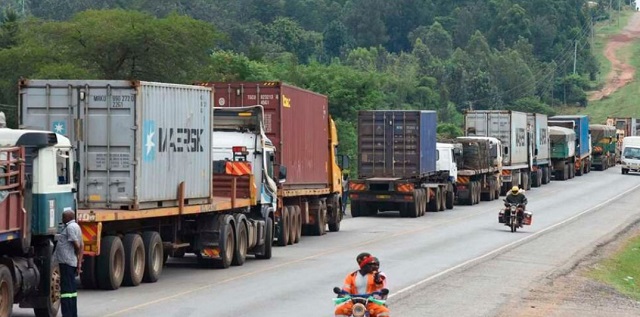
Dozens of local firms are still demanding for payments from Juba for goods supplied more than a decade ago
Kampala, Uganda | ISAAC KHISA | Africa’s newest state, South Sudan, has by-passed Uganda and signed a trade agreement with Malawi for the supply of grain and other agricultural commodities.
This follows signing of a memorandum of understanding between the Minister of Trade and Industry of South Sudan, Kuol Athian Mawien and his Malawian counterpart, Sosten Gwengwe, in Juba recently, with the support of the African Export Import Bank.
The five-year agreement will allow see South Sudan to import grain and other agricultural products from Malawi which is currently estimated to be having in excess of 1.2million metric tonnes of grain.
Malawi will, meanwhile, be supplied with commodities such as petroleum products and bitumen, supporting development and wealth creation in the South Sudanese economy.
While the agreement was struck at government level, implementation will be managed by private sector institutions, which will be responsible for the procurement and distribution of grains and petroleum products.
The Export Development Fund of Malawi (EDF), in its role as the country’s export credit agency, will facilitate trade by arranging local financing and issuing guarantees to local banks that support exporters in Malawi.
Prof. Benedict Oramah, the President of Afreximbank, said this is a historic moment for two countries that showcases the promise of the Africa Continental Free Trade Area in action.
“By taking their first ever steps into trade collaboration, both countries will unlock new channels for inclusive wealth creation and secure high-quality jobs for their people,” he said.
“Afreximbank is proud to be working with both Governments and the Malawi Export Development Fund to enable the flow of trade.”
Prof Orama said the collaboration between Malawi and South Sudan will demonstrate the value of export development and regional integration, paving the way for others to follow this path to prosperity.
Uganda has been a long trading partner with South Sudan supplying most of the commodities such as food, construction materials and clothes.
However, Ugandan traders have experienced difficulties in trading with Juba owed to insecurity and non-payment for the commodities supplied.
Currently dozens of Ugandan firms are demanding for payments from the South Sudan government for goods supplied in 2008.
Whereas the two governments have carried out a verification exercise, payments are yet to be concluded. Last year, Uganda’s Minister of Finance, Planning and Economic Development, Matia Kasaija, said the government was lending a loan to the South Sudan government by compensating only traders within the bi-lateral agreement signed between the two governments.
Kasaija said, the 10 companies that were claiming a total of US$56 million since 2008 were paid only US$25 million, with the outstanding balance cleared within five years according to government’s cash flow.
He said the government had considered Parliament’s resolution of 2018 to compensate extra traders by verifying over 100 traders. However, he observed that many do not satisfy the requirements for compensation citing several irregularities.
“In some instances, some sub-contracts were signed before the agreement with South Sudan was signed, some traders supplied goods less the quantity within the contracts but they are claiming payment according the entire contract value, and there are traders who were directly contracted by officials within government of South Sudan,” he said.
Ugandan traders have over the years requested the government to come up an export guarantee scheme to minimize possible losses in the neighbouring states especially South Sudan.
Uganda’s trade exports to South Sudan had hit US$453million in 2009 before dropping to US$304million in 2013 due to internal conflicts, according to Bank of Uganda statistics. However, the country’s trade earnings has since increased, reaching US$415million in 2019.
****
 The Independent Uganda: You get the Truth we Pay the Price
The Independent Uganda: You get the Truth we Pay the Price


